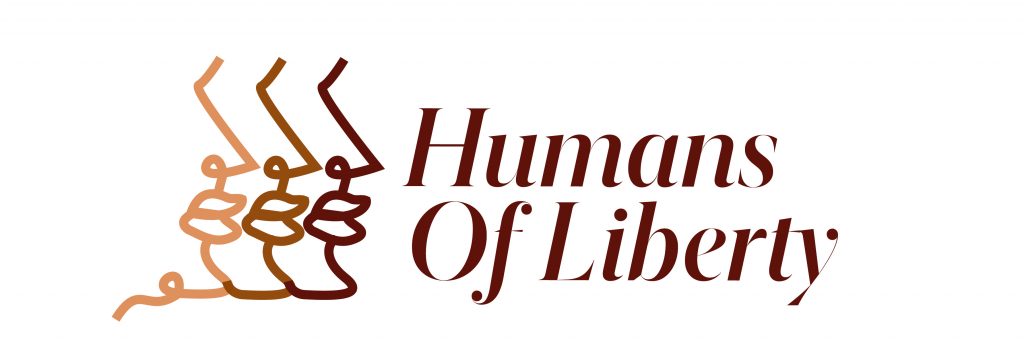Many do not give a second thought to whether or not they will be able to understand things they listen to, whether a movie or a lecture given by a professor. For deaf Liberty online student Jessica Kuehne, however, clear and accessible communication is something she must advocate for constantly when interacting with the hearing community.
Kuehne’s family is a fourth-generation Deaf family, with roots in the Deaf community reaching back across many decades. Kuehne’s first language is American Sign Language (ASL), and her family prioritized her schooling in order to ensure her education would not suffer because of the communication barrier. This pursuit meant moving from her home state of Washington to Illinois then to Texas.

Jessica Kuehne is passionate
about fostering communication between the hearing and deaf. Photo provided.
Beginning her journey in mainstream education at age 6, Kuehne remembered having to adjust to an environment where she could not readily communicate with those around her.
“That’s when I realized, ‘Okay, I’m one of the few deaf people here with all of these hearing students.’ Growing up in a Deaf family, I felt very normal. I thought everybody was deaf, so I then realized we are a small community,” Kuehne said.
While interacting with her hearing neighbors and friends was a very normal part of Kuehne’s childhood, learning ways to effectively communicate took a great deal of time and effort on her part. Kuehne recalls writing on notebooks and having an interpreter with her in order to communicate with her hearing peers while in a mainstream school before transferring to the Illinois School for the Deaf and Texas School for the Deaf.
“I had full communication in the deaf institute, but in the hearing [institute], some of the communication barriers [required me] to be very creative in learning how to connect,” Kuehne said.
Once she graduated from the Texas School for the Deaf, Kuehne pursued a communication studies undergraduate degree at Gallaudet University, which is the world’s only university in which all programs and services are specifically designed to accommodate deaf and hard-of-hearing students. As a signing community, the school acts as a place where sign language is the primary tool of communication, allowing for complete freedom in pursuing accessible communication.
“When you sign, you are showing respect. When people are signing, even when they are speaking, they’re showing respect. That way they’re not overlooking the deaf people,” Kuehne said.
During her junior year at Gallaudet, Kuehne stepped into a peer advisor role, offering support to freshmen amidst a tough and daunting transition. She switched her major to counseling and fell in love with it, choosing to pursue her masters in mental health counseling.
Once she graduated from Gallaudet, Kuehne worked as a mental health counselor in North Carolina for eight years and has been working at Gallaudet in the counseling center for three years.
Kuehne understands that counseling is about two people growing in a professional yet emotionally engaging relationship and said she will always care about the interpersonal aspect.
“I think it’s a rewarding experience in that I’m sitting with different people, watching their growth. It’s an honor to sit with each individual during their journey through counseling,” Kuehne said.
Kuehne is currently in her fourth year of pursuing her PhD in counseling education and supervision through Liberty University’s online program.
Although her family raised her in a Christian environment, Kuehne began her relationship with the Lord at 21 years old, and she acknowledges how important it is to her that Liberty offers a Christian education.
“[Salvation] was very significant in my life and my spiritual growth and over time became very important to me, and Liberty has a wonderful program. Plus, they incorporated that spiritual aspect with their counseling program,” Kuehne said.
A huge part of the way Kuehne is able to interact with the hearing world is through interpreters. When in a medical, educational or professional setting, interpreters allow both Kuehne and the person she is communicating with to be clearly understood and seen.
“I cannot tell you how significant the role of interpreters in my life is. I would not be able to be successful without the interpreters facilitating conversation like this. I have a great respect for interpreters and what they do for us,” Kuehne said.
Kuehne acknowledges more education must be done on a local level in bridging the hearing and Deaf communities, but the steps forward in recent years give her hope.
“I think today, it is a lot better. There is more interpreter access. There’s more people who are becoming more aware of the Deaf culture — not like it was before,” Kuehne said.
Kuehne credits social media for the shift in awareness. Anyone can access ASL courses in a formal online setting or simply through watching YouTube videos (provided by Deaf teachers). Exposure to the Deaf community, willingness to learn ASL and understanding that closed captions are essential are steps that can help bring awareness to the Deaf community.
“What I wish is for people to be really motivated and excited about learning sign language and being passionate about being open to the Deaf culture,” Kuehne said. “I encourage the hearing people to sign more so we can make connections and bridge that gap between the deaf and the hearing world.”
ASL has a culture within itself, and Kuehne invites the hearing community to walk in sensitivity and curiosity when learning about their incredibly tight-knit and diverse culture.
“Just remember, deaf people are a variety. They’re not all the same. We all have different identities,” Kuehne said. “It’s important for the hearing community to understand we have a spectrum. We’re all in different places within the Deaf community.”
Vires is a feature writer. Follow her on Twitter.
